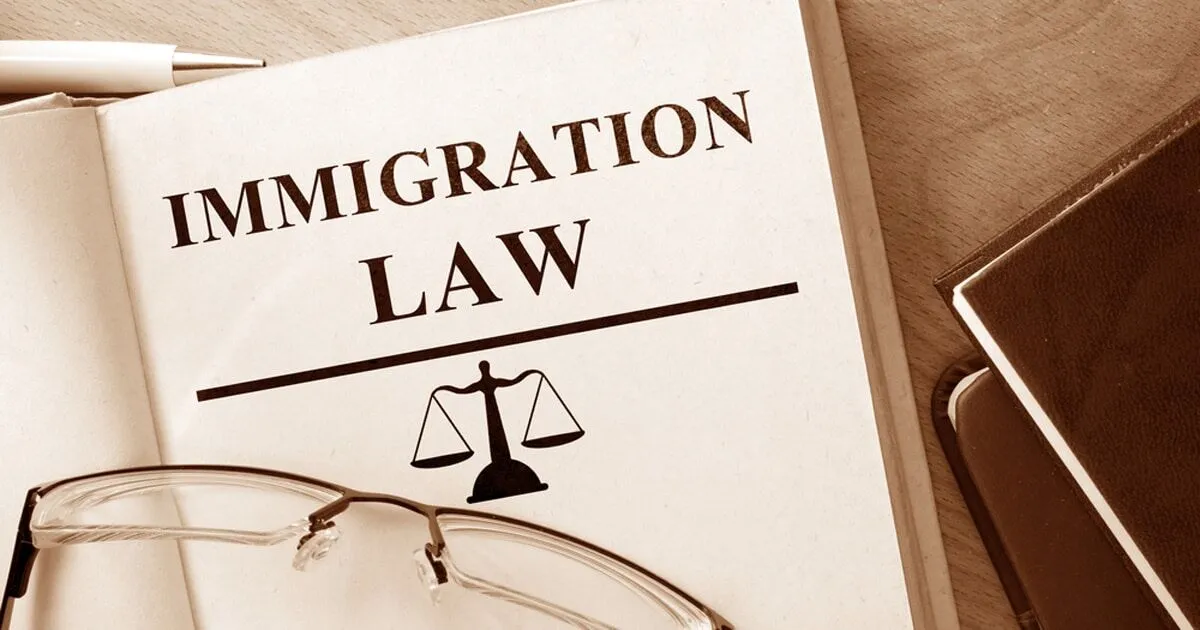
Canada is known for its diverse and welcoming immigration policies, attracting thousands of newcomers worldwide every year. While the prospect of starting a new life in Canada is exciting, navigating the immigration process can be complex and challenging. This comprehensive guide explores immigrants’ common challenges in Canada and how immigration lawyers can provide invaluable assistance.
Understanding Canadian Immigration

Before delving into the challenges, let’s establish a foundational understanding of the Canadian immigration system.
1.Types of Canadian Immigration
Details: Canadian immigration offers several pathways, each catering to different categories of applicants:
- Express Entry: This points-based system is designed for skilled workers. Applicants are evaluated based on age, education, work experience, and language proficiency. Those with high Comprehensive Ranking System (CRS) scores have a better chance of receiving an Invitation to Apply (ITA) for permanent residency.
- Family Sponsorship: Canadian citizens and permanent residents can sponsor family members, including spouses, parents, and dependent children, to immigrate to Canada.
- Provincial Nominee Programs (PNPs): Provincial governments nominate individuals based on their specific labour market and economic needs. Each province has its own PNP, and eligibility criteria vary.
- Refugee and Asylum Seekers: Individuals fleeing persecution, violence, or danger in their home countries can seek refugee or asylum status in Canada. The process involves demonstrating a well-founded fear of persecution based on protected grounds (race, religion, nationality, political opinion, or membership in a particular social group).
2. Immigration Levels
Details: Canada has an annual immigration target, which can vary yearly. For example, in 2021, Canada aimed to admit over 401,000 immigrants to address labour market needs and promote economic growth.
3. Permanent vs. Temporary Residency
Details: Canadian immigration offers both permanent and temporary residency options:
- Permanent Residency (PR): PR status allows individuals to live and work in Canada indefinitely. PR holders have access to most of the same benefits and services as Canadian citizens, including healthcare and education.
- Temporary Residency: Temporary residents come to Canada for a specific period, such as international students, temporary foreign workers, or visitors. They have limited rights and are subject to particular conditions related to their status.
4.Express Entry System
Details: The Express Entry system is a popular immigration pathway for skilled workers. It includes three federal economic immigration programs:
- The Federal Skilled Worker Program (FSWP)
- The Federal Skilled Trades Program (FSTP)
- The Canadian Experience Class (CEC)
Applicants create an online profile, and their eligibility is determined based on age, education, work experience, language skills, and adaptability. Regular draws invite candidates with the highest CRS scores to apply for PR.
5. Provincial Nominee Programs (PNPs)
Details: PNPs allow provinces and territories to nominate individuals with the skills, education, and work experience needed to contribute to the local economy. Each area or region has its PNP with specific streams targeting different types of workers, entrepreneurs, and investors. PNPs can provide an alternative route to permanent residency for those who may not qualify through federal programs.
6.Family Sponsorship
Details: Canadian citizens and permanent residents can sponsor eligible family members to join them in Canada. Family sponsorship can include spouses, common-law partners, parents, grandparents, dependent children, and adopted children. Sponsors must commit to financially supporting their sponsored family members for a specified period, ensuring they have access to essential services and resources.
Common Challenges in Canadian Immigration

1.Complex Application Procedures
- Challenge: Filling out immigration applications correctly can be challenging due to their complexity and frequent updates. Each immigration program has specific requirements; even minor errors or omissions can lead to delays or rejections.
- Solution: Immigration lawyers are well-versed in the intricacies of the application process. They ensure all forms are completed accurately, supporting documents are included, and submission deadlines are met. Their expertise minimizes the risk of errors and enhances the likelihood of approval.
2. Eligibility Criteria
- Challenge: Understanding the eligibility requirements for different immigration streams can be confusing. Each program has specific criteria related to factors such as age, education, work experience, and language proficiency. Applicants may need help determining which pathway is most suitable for their circumstances.
- Solution: Immigration lawyers assess applicants’ qualifications and objectives to identify the immigration pathway that aligns best with their goals. They provide clear guidance on meeting eligibility criteria and help applicants build a strong case for their chosen program.
3.Language Proficiency
- Challenge: Language proficiency is crucial in many Canadian immigration programs, particularly the Express Entry system. Applicants must demonstrate their ability to communicate in English or French through standardized language tests. Achieving the required scores can be challenging for some.
- Solution: Immigration lawyers advise applicants on language exam requirements and alternatives. They may recommend language courses and provide strategies to improve language skills. Additionally, lawyers can help applicants prepare for language exams like IELTS or CELPIP.
4. Document Verification
- Challenge: Gathering and verifying required documents, such as educational certificates, work references, and police clearances, can be time-consuming and cumbersome. Applicants may need help to ensure that all documents meet the Canadian government’s standards.
- Solution: Immigration lawyers assist applicants in compiling and authenticating necessary documents. They know what documents are required for each program and can guide applicants through the verification process, reducing the risk of delays or rejections.
5. Medical and Security Checks
- Challenge: Immigration applicants must undergo medical examinations and security clearances. Navigating these processes, including extensive background checks and medical assessments, can be stressful.
- Solution: Immigration lawyers prepare applicants for these checks, helping them understand what to expect and how to address any issues that may arise. Lawyers can also intervene if there are complications during these assessments.
6. Express Entry Draws
- Challenge: The Express Entry system, which manages applications for skilled workers, operates through regular draws from a pool of candidates. Meeting the Comprehensive Ranking System (CRS) score required for an Invitation to Apply (ITA) can be competitive, and some applicants may wait to receive an ITA.
- Solution: Immigration lawyers analyze an applicant’s CRS score and provide strategies to improve it. They may suggest additional steps, such as gaining work experience, obtaining provincial nominations, or improving language proficiency to enhance an applicant’s chances of receiving an ITA.
How Lawyers Can Help

Immigration lawyers play a crucial role in overcoming these challenges:
1.Legal Expertise
- Role: Immigration lawyers possess in-depth knowledge of Canadian immigration laws, policies, and regulations. They stay up-to-date with changes in immigration laws and are well-versed in the system’s intricacies.
- How They Help: Lawyers interpret complex immigration laws, ensuring applicants understand their rights and obligations. They also advise clients on the best immigration pathways based on their circumstances and objectives. This expertise helps applicants make informed decisions about their immigration strategies.
2. Application Assistance
- Role: Immigration applications often involve numerous forms, documents, and supporting evidence. A small mistake or omission can result in delays or rejections.
- How They Help: Lawyers assist applicants in preparing complete and accurate immigration applications. They review all documentation to ensure it meets government standards and is appropriately formatted. This attention to detail minimizes the risk of errors and improves the chances of application approval.
3. Appeals and Remedies
- Role: In cases where immigration applications are denied or refused, applicants can appeal or seek remedies. Navigating these processes can be complex and challenging.
- How They Help: Lawyers are experienced in handling appeals and remedies. They can prepare a strong case for appeal and represent clients before immigration tribunals or other relevant authorities. This can lead to a reversal of the initial decision and a positive outcome for the applicant.
4. Language Proficiency Support
- Role: Language proficiency is a critical factor in many Canadian immigration programs. Applicants may need help to meet the required language scores.
- How They Help: Lawyers assess applicants’ language proficiency and recommend suitable language courses or resources to improve their skills. They also help applicants prepare for language exams like IELTS or CELPIP, offering guidance on study materials and test strategies.
5. Adherence to Timelines
- Role: Timelines and deadlines are crucial in the immigration process. Please submit the required documents on time to avoid delays or adverse outcomes.
- How They Help: Lawyers help applicants manage timelines efficiently. They ensure that all required documents are submitted within the specified timeframes and monitor the progress of applications to avoid any potential delays. This ensures that applications proceed smoothly and meet processing timelines.
6. Addressing Unexpected Challenges
- Role: Immigration processes can sometimes present unexpected challenges or complications. These may include changes in personal circumstances or legal issues.
- How They Help: Lawyers are equipped to address unexpected challenges as they arise. They can guide how to adapt to changing circumstances and make necessary adjustments to immigration strategies. Their expertise in navigating complex legal issues ensures applicants are well-prepared for surprises.
Conclusion

Canadian immigration lawyers offer incredible opportunities, but it comes with its challenges. Immigration lawyers are essential to overcoming these obstacles, offering legal expertise, guidance, and representation. Whether you’re a skilled worker, a family sponsor, or a refugee, seeking professional legal counsel can significantly enhance your chances of a successful immigration journey.
Don’t let challenges deter you from pursuing your dream of living in Canada. With the right immigration lawyer by your side, you can navigate the complexities of the immigration system and embark on a new and promising chapter in your life in the Great White North.












